The Illusion of Conscious Will
4.5
بر اساس نظر کاربران

شما میتونید سوالاتتون در باره کتاب رو از هوش مصنوعیش بعد از ورود بپرسید
هر دانلود یا پرسش از هوش مصنوعی 2 امتیاز لازم دارد، برای بدست آوردن امتیاز رایگان، به صفحه ی راهنمای امتیازات سر بزنید و یک سری کار ارزشمند انجام بدینکتاب های مرتبط:
معرفی کتاب 'Illusion of Conscious Will'
کتاب 'Illusion of Conscious Will' اثر من، دانیل م. وگنر، به کنکاش عمیقی در مورد پدیده شگفتانگیز اراده آگاهانه انسانی پرداخته است. در این اثر، من به بررسی این موضوع میپردازم که احساس کنترل و اختیار ما در اعمال و تصمیمگیریها، حقیقتی درونی است یا فقط یک خیال و توهم. این بحث، تلفیقی از پژوهشهای علوم اعصاب، روانشناسی و فلسفه است که نگاهی نوین به طرز تفکر انسان ارائه میکند.
خلاصهای از کتاب
در کتاب 'Illusion of Conscious Will' من سوالاتی عمیق درباره ماهیت اراده و مفهوم اختیار آزاد مطرح میکنم. آیا ما واقعاً بر اعمال و تصمیمگیریهایمان کنترل داریم؟ در این کتاب ثابت میکنم که بسیاری از اقداماتی که به نظر ما میآیند که از طریق ارادهمان کنترل میشوند، در واقع به صورت ناخودآگاه و بدون آگاهی ما شکل میگیرند. با مرور تاریخی و بررسی تجربی، نشان دادهام که فرآیندهای مغزی و روانشناختی زیادی مسئول ایجاد احساس اراده هستند، که ممکن است ارتباط مستقیمی با تصمیمگیریهای آگاه ما نداشته باشند.
نکات کلیدی
- توضیح چگونگی شکلگیری احساس اراده و اختیار در ذهن انسان.
- تحلیل پژوهشهای تجربی که نشاندهنده تفاوت بین تصمیمگیری آگاهانه و فرآیندهای ناخودآگاه هستند.
- بررسی دیدگاههای فلسفی درباره اختیار آزاد و مسئولیت اخلاقی.
- بحث در مورد نتایج کاربردی درک بهتر از مفهوم اراده در زمینههایی همچون حقوق، روانشناسی و علوم اعصاب.
جملات معروف از کتاب
"The feeling of conscious will is a construction, not just a reflection of our mental processes."
"Our sense of will makes us responsible for an overwhelming number of actions, but not all of them are truly voluntary."
اهمیت این کتاب
اهمیت این کتاب در چالش بزرگتری است که به اعتقادات بنیادین ما درباره اراده آگاهانه و ارزشی که به اختیار آزاد میدهیم، میپردازد. ارائه شواهدی که نشان میدهند احساس اراده کنترل کامل بر اعمال ما نیست، تاثیری عمیق بر فهم ما از خودمان و دیگران دارد. این تاثیر میتواند به طور وسیعی در ایجاد دیدگاه های جدید در زمینههای حقوقی، آموزش، و حتی مراقبتهای بهداشتی نقش داشته باشد. فهم اینکه چگونه احساس اراده میتواند توهمی باشد، به ما کمک میکند تا بهتر با چالشهای اجتماعی و فردی برخورد کنیم.
Welcome to the intriguing and thought-provoking book, The Illusion of Conscious Will, by Daniel M. Wegner. This book challenges our fundamental understanding of consciousness and free will, presenting a pioneering exploration into how our minds create the experience of conscious will. This introduction provides an in-depth overview, important themes, notable quotes, and the significant impact of this work.
Detailed Summary of the Book
Daniel M. Wegner’s The Illusion of Conscious Will delves into one of the most profound questions of human existence: do we actually have free will, or is it merely an illusion created by our minds? Wegner explores this question by examining the phenomena where our experiences of will diverge from the actions we perform. His analysis draws from various fields, including psychology, neuroscience, and philosophy, to dissect the processes behind the perception of volition.
The author presents compelling evidence from experiments and case studies to illustrate that our sense of will is a feeling generated by our brain, rather than a causative agent for actions. Wegner elucidates how post hoc interpretations and the correlation between thought and action lead individuals to mistakenly attribute conscious causation. He uses examples such as automatism, hypnosis, and brain activity studies, leading to the conclusion that our conscious will does not necessarily influence behavior.
Key Takeaways
- Conscious will is a construct of the mind rather than a driver of our actions.
- Our experiences of will often follow the actions they supposedly instigate, rather than precede them.
- The distinction between automatic actions and consciously willed ones is more blurred than traditionally thought.
- Cultural and societal beliefs heavily influence our perception of free will.
- Understanding the illusion of conscious will has profound implications for concepts of morality, responsibility, and legal systems.
Famous Quotes from the Book
“The experience of will is a feeling, like the experience of love or anger. It is not a force, nor does it control movement.”
“We tend to presume that things happening in conjunction mean causation, a classic cognitive error that gives rise to perceived control over our actions.”
Why This Book Matters
The Illusion of Conscious Will holds significant importance in the contemporary study of psychology and human behavior. By challenging the conventional wisdom surrounding free will, it invites readers and scholars to reassess deeply held beliefs about autonomy and accountability. The book’s implications reach beyond academic circles to influence ethical debates, the philosophy of mind, and even legal considerations regarding responsibility and intent.
Wegner’s work acts as a crucial bridge between scientific exploration and philosophical inquiry. By providing a research-based perspective on a subject often dominated by metaphysical speculation, Wegner advances understanding and stimulates discussions that could change how society considers human agency.
دانلود رایگان مستقیم
شما میتونید سوالاتتون در باره کتاب رو از هوش مصنوعیش بعد از ورود بپرسید
دسترسی به کتابها از طریق پلتفرمهای قانونی و کتابخانههای عمومی نه تنها از حقوق نویسندگان و ناشران حمایت میکند، بلکه به پایداری فرهنگ کتابخوانی نیز کمک میرساند. پیش از دانلود، لحظهای به بررسی این گزینهها فکر کنید.
این کتاب رو در پلتفرم های دیگه ببینید
WorldCat به شما کمک میکنه تا کتاب ها رو در کتابخانه های سراسر دنیا پیدا کنید
امتیازها، نظرات تخصصی و صحبت ها درباره کتاب را در Goodreads ببینید
کتابهای کمیاب یا دست دوم را در AbeBooks پیدا کنید و بخرید
1490
بازدید4.5
امتیاز0
نظر98%
رضایتنظرات:
4.5
بر اساس 0 نظر کاربران
Questions & Answers
Ask questions about this book or help others by answering
No questions yet. Be the first to ask!
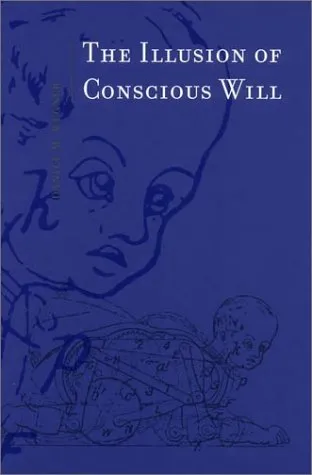




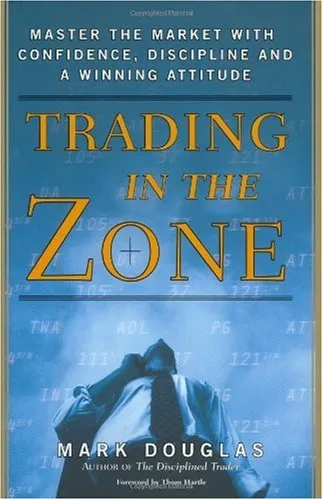

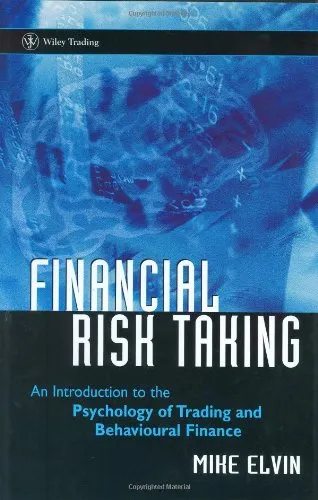
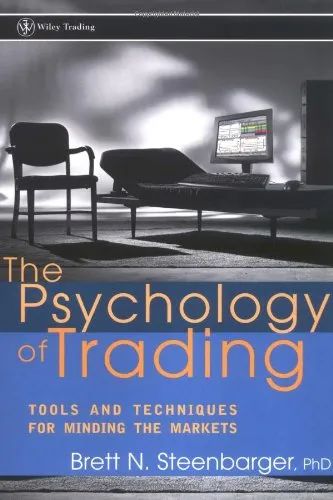

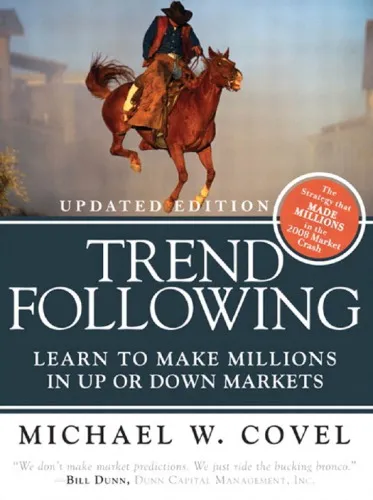

![Inner Engineering: A Yogi's Guide to Joy [Paperback] [Jan 01, 2014] SADHGURU](https://s3.refhub.ir/images/thumb/Inner_Engineering__A_Yogi_s_Guide_to_Joy__Pap_6491.webp)


